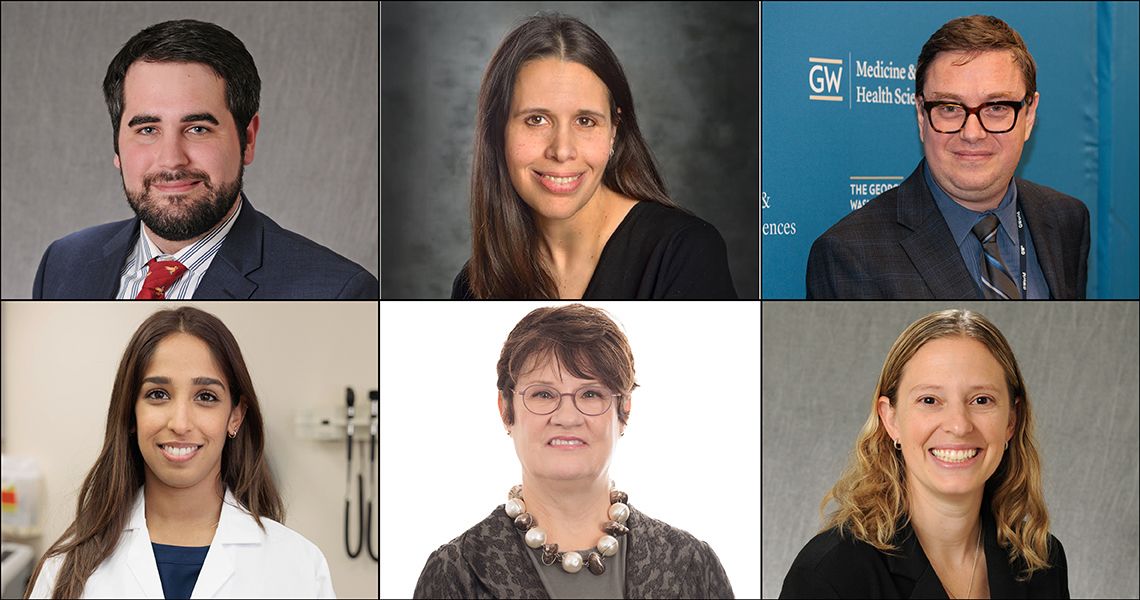The Center for Faculty Excellence recently named six faculty members from the George Washington University School of Medicine and Health Sciences as the newest cohort of members to the Academy of Education Scholars. The 2024 Academy of Education Scholars cohort represents school, department, and program leadership and faculty members.
2024 Academy of Education Scholars:
- Patrick Corr, EdD, MEd, assistant program director, integrative medicine, and assistant professor of clinical research and leadership
- Terry Kind, MD, MPH, associate dean of clinical education, and professor of pediatrics
- Ioannis Koutroulis, MD, PhD, MBA, associate dean for MD admissions, and associate professor of pediatrics
- Shazia Samanani, MD, assistant professor of medicine.
- Mary Warner, DBH, PA-C, chair, Department of Physician Assistant Studies
- Erin Wentzell, DPT, assistant professor of health, human function, and rehabilitation sciences
“The Academy of Education Scholars is a vibrant community of practice that is vital for cultivating educational scholarship at GW SMHS. The academy empowers educators to enhance their research skills, engage with a network of experts, and contribute to innovative educational initiatives,” said Anthony Artino, PhD, associate dean for educational research, and professor of health, human function, and rehabilitation sciences, who along with Zareen Zaidi, MD, PhD, associate director for education research and scholarship, and professor of medicine, co-directs the Academy of Education Scholars. “Together, we are committed to fostering a culture of responsible research and scholarly thinking in medical and health sciences education at GW SMHS.”
Established in 2017, the Academy of Education Scholars works to advance scholarship and research in medical and health sciences education and enhance educational programs and patient care at GW SMHS. One of the primary goals is to position the school as a global leader in medical and health sciences education research by developing faculty expertise, forming a cadre of recognized experts to serve as mentors, and recognizing faculty excellence in educational scholarship. The academy also aims to support early- and mid-career faculty and advise school leadership on innovative, evidence-informed ways of enhancing the educational mission.
Membership in the academy is selective, inviting faculty with demonstrated excellence or emerging interest in educational research. Members are required to participate in Academy activities, mentor peers, and contribute to the academy’s initiatives, committing at least 10 hours of service annually.
Funding is available for academy members to support their research-related expenses, with each member eligible to request up to $1,000 per year. These requests are evaluated based on the availability of funds. Through these efforts, the Academy seeks to enhance the quality of education and impact the broader field of medical and health sciences education.
“We believe the academy can be a transformative experience for both faculty and the broader educational community,” said Zaidi. “By nurturing our faculty as they pursue educational scholarship and facilitating their skill development, we hope to spark innovation and excellence in medical and health sciences education. Our initiatives — ranging from hosting expert speakers to creating award opportunities — ensure that faculty members not only contribute to their fields, but also gain recognition for their impactful educational scholarship.”



